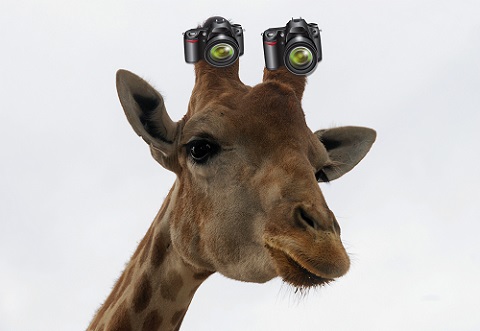Simon Apfel
3 September 2015
December 2010 – Several shark attacks occur off the South Sinai resort of Sharm el-Sheikh in Egypt. Egyptian officials blame the attacks on Mossad, claiming Israel deliberately introduced the man-eating sharks to sabotage Egypt’s tourist industry, and citing a GPS tracker or “guiding device” found on one of the sharks as strong evidence.
August 2011 – A griffon vulture, caught by a hunter in rural Saudi Arabia, is turned over to security forces after it is found to be wearing a similarly “suspicious” GPS device and a “Tel Aviv University” tag on its leg. A similar case is reported in Sudan in December 2012. In both instances, authorities accuse the vulture of being an Israeli spy and take it into custody for questioning.
In the months that follow, Turkey detains a kestrel and a bee-eater, Lebanon a fish eagle, and Egypt a pigeon. Most recently, fishermen in Southern Egypt carry out a citizens’ arrest on a stork. And just this week, after noting “suspicious movements”, Hamas captured an Israeli “spy dolphin” near the coast of the Gaza Strip.
From the Stuxnet computer worm to the high-tech bomb attacks on two leading Iranian nuclear scientists, Mossad are believed to have been behind some of the most daring escapades in recent times.
But is the existence of a crack animal espionage unit a step too far even for the world’s most audacious and technologically advanced covert organisation? In this no-holds-barred expose, Simon Apfel lifts the veil on one of the most extraordinary military facilities known to man (or beast).
It’s morning in Sde Even-Chol, a small, arid settlement buried deep in the heart of the Negev desert, as a rather dazed-looking gazelle is being led out, reluctantly it seems, for its first training exercise of the day. A huddle of swarthy agents stand around by a fenced enclosure drinking black coffee and exchanging dirty jokes. They know a grim day lies ahead of them.
Directly to the right, ripples are forming on the surface of what looks like a vast man-made pond, as a swan conscientiously goes about its ablutions, and fish dart about underneath. A seal is stretched out on a nearby rock, its contented face upturned to the pale early-morning sun.
Overhead, a flock of gulls fly in formation. Their squawks mingle with animal cries of every variety which fill the desert air and echo off the distant mounds that surround Sde Even-Chol’s crater-like expanse.
Not for the last time that day, I rub my eyes at the strangeness of it all.
Sde Even-Chol is an undisclosed, highly secretive location. You won’t find it on any map of Israel or tourist brochure. While the spate of recent high-profile arrests across the Middle East means revelations around the world’s first known animal spy unit are only now coming to light, it is believed that such a unit has been run from this site since the 1950s. Others trace the roots of the unit as far back as biblical times, pointing to the dove Noah sent forth to spy out the land after the end of the flood.
This is Israel’s Animal Espionage Programme (PEA for short) (you kind of have to jiggle the words around) (Mossad’s excuse: “If Hebrew grammar does that kind of thing, so can we”) (some people will go to ridiculous lengths to contrive a snappy acronym) (and this one isnt even particularly snappy) (but I do like peas) (although only if they’re light and springy; if they are hard and crumbly I don’t touch them) (which reminds me, Gayle I think you may have left the stove on this morning after you made the boys’ porridge) (and I can pretty much write whatever I want and nobody will notice).
Bar Rafaeli* (not his real name) is a high-ranking PEA officer and the person tasked with showing me around the site. He tells me that rumours of the existence of the animal spy unit began to emerge in the 1970s, leading to the expression, “a fly on the wall”, entering the public lexicon. I ask Bar about “the elephant in the room”, but he slaps me, calls me an idiot and informs me the phrase is purely idiomatic. After a while, he apologises and starts telling me about his mother issues. I urge him to resume the tour.

By now the day’s training exercises are in full swing.
In one room, a duck is undergoing drills to ensure that in case of enemy capture, he doesen’t quack under pressure. A hardened interrogation officer is firing cruel, merciless insults, saying his beak is too small and that he’s rubbish at catching fish. But this duck is obviously a seasoned veteran of the programme. He sits there unmoved, the insults falling like water off his back, as he nibbles absentmindedly on a pen and extends his neck in periodic jerk-like movements.
In an adjoining room, Rav Avrohom Yitzchak Kook* (not his real name), a real-life Doctor Dolittle, is conducting animal whispering training for the Mossad officers stationed at the base. Today, it’s how to speak to goats. As we enter the classroom, we are lucky enough to catch one of the officers utter a pitch-perfect bleat into the face of a bewildered billy.
According to Bar, Rav Kook comes from a long line of animal whisperers. His grandfather was the inspiration for the fictional Doctor Dolittle character, and the Rav himself is rumoured to have taught a horse to ride a human, an Aardvark to dance the Macarena, and an earwig to recite the complete works of Shakespeare.
The sound of familiar chanting can be heard as we prepare to enter another room. A rather surprising sight greets us – animals sitting in pairs, one opposite the other, with books open between them. Bar explains that the animals can have their military conscription deferred by opting for full-time learning. Apparently, The Jungle Book is considered the most difficult yet worthwhile text, but scattered around the room are copies of The Very Hungry Caterpillar, Black Beauty, Charlotte’s Web and Anthony Robbins’ Awaken the Giant Within.
“The mantises are obviously incredibly devout,” says Bar. “But it’s the penguins who are the most ardent of our full-time learners. They display an extraordinary affinity and love for learning and an ability to immerse themselves in it regardless of what’s happening around them.”
Unfortunately, it would be stretching things to say this bookish devotion earns the penguins anything but the scorn of their more action-oriented fellow PEA operatives. It seems even in an environment as unusual as this, the dynamics of Israeli society replicate themselves.
By now the desert sun is scorching, and most of the land animals are out of sight, seeking refuge under the trees and among the bushes. Bar leads me round to a rather large enclosure, and I notice a giraffe poking its head out above the treetops. I can’t help but be amazed.
Bar fills me in: “We deploy the giraffes to spy on hard-to-reach enemy strongholds – for instance, covert meetings held in upper-storey apartments.”
The obvious question is how they go undetected.
“It comes down to perceptual blindness,” he explains. “Like the early Native Americans who were literally unable to see Columbus’s fleet of tall European ships when they approached their shore, the sight of an African giraffe’s giant head peering into your 4th-floor bedroom window in Gaza is so alien and unfathomable as to be effectively imperceivable.”

Of course, wild animals aren’t the only ones serving in PEA. Sde Even-Chol is full of cats (not unlike every other place in Israel), and these domesticated creatures have proven very effective spy agents. Their lack of close associations and intimate relationships is ideal for a vocation that is both lonely and highly dangerous, and their cold indifference means they rarely crack under interrogation. Bar tells me that a few years back a PEA cat was captured by the enemy and brutally tortured with the infamous ball and string baiting (supposedly phased out by even the most oppressive regimes in the late 1980s), yet didn’t offer up a shred of information. Another had its litter taken hostage by the Ayatollah of Iran, but the Supreme Leader’s grandchildren found the little kittens so adorable that he was forced to hand them over to them as Eid gifts.
And what of dolphins, the most intelligent and articulate of all mammals? I learn that dolphins were initially the pride and joy of the animal espionage programme. However, after proving curiously ineffective at avoiding capture, they began being phased out in early 1960s. As Bar puts it, “dolphins look too Jewish to be effective undercover”.
After lunch, we walk across the camp to the insect enclosure, home to one of the PEA’s oldest and most distinguished units. A cockroach is standing on its hind legs ferociously jabbing a makeshift punching bag – a red berry attached to a twig – with (what I assume to be) unerring accuracy and power.
I broach a question that has been nagging at me all day – what about their rights? These insects are small and relatively powerless. Do they ever complain about mistreatment?
“The question is insulting to them,” says Bar, bristling. “It implies that they need some sort of protection. These insects are well-oiled fighting machines … I think they can handle themselves!” (He smirks.)
But what if they refuse to serve?
“Oh, they get fed to the birds,” reveals a former PEA operative, speaking on condition of anonymity. “The entire programme, in fact, is a complete distortion of the natural world.”
In another shocking aside, this confidential informant tells me that chickens are fed disobedient fellow chicken, blissfully unaware that they are gobbling up flambéed family members.
“The animals organised an uprising in the late 1980s (on which the 1996 Kurt Russell action-thriller, Escape from L.A., was very loosely based),” the CI tells me, “but it was quelled by a group of hippopotamus loyalists and ultimately proved unsuccessful.”
#
It’s evening now, and as I make my way back to the officers’ quarters, my head is spinning with all that I’ve encountered that day.
That night I can’t sleep. The animals are making a racket. But it’s more than that. I’m shaken to the core by what I’ve seen. Sure, Israel has the right to self-defense. And with 0.01% of the population and 0.001% of the land mass of the 22 Middle East states that surround it – many of whose leaders constantly avow its destruction – its security concerns are only too real. But this did seem a step too far. This was science-fiction territory. X-Files, evil government sci-fi, not Spielbergian whimsy.
I wake up with a start. It had all been a dream! No such unit existed, nor could it. I wake up with a start. My realisation that it had all been a dream had all been a dream. Or was this another dream? Whatever the case may be, I think it’s time to turn to a new page. I really have no idea how to end this piece. Bibi, get me out of here!
Simon Apfel was born into obscurity, the son of a frozen peas importer and a washing machine. Even from a young age, he seemed destined for greatness, urinating on an electric wall panel, and short-circuiting an entire block of flats. His fame soon spread excrementally. As a teenager, Apfel was introduced to Joyce, Dostoyevsky and Michel Houllebeq, and his self-confidence took a knock from which it never quite recovered. Nevertheless, he gradually progressed from being a rough and raw talent to become the polished piece of costume jewellery currently on display. Apfel describes his writing style as “cinematic”. His favourite pastimes include scratchcards, pigeon-kicking and procreation. He also enjoys star-gazing, hair-raising, head-scratching and chin-wagging. Apfel is senior writer at Mama Creative.






Be First to Comment